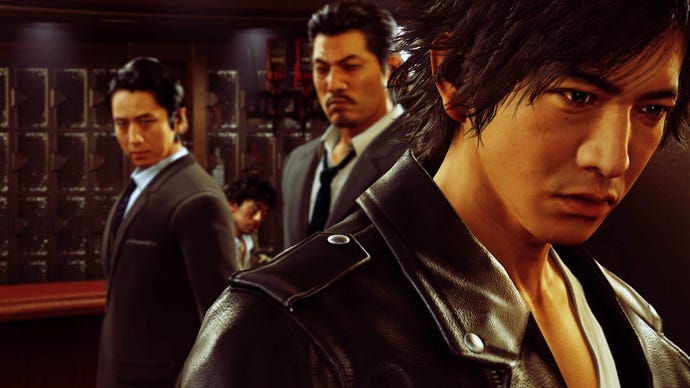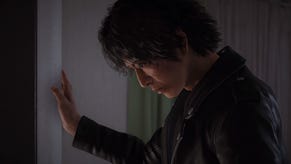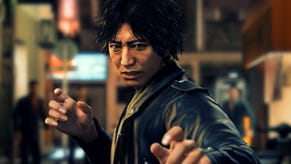Judgment Review
Tangle with the Tojo Clan again, but this time as a detective.
This article first appeared on USgamer, a partner publication of VG247. Some content, such as this article, has been migrated to VG247 for posterity after USgamer's closure - but it has not been edited or further vetted by the VG247 team.
You don't really play Yakuza games. You live them. You eat the food in the ever-familiar Kamurocho restaurants like Wild Jackson. You befriend the locals. You help the locals. You beat up dudes who roam the streets trying to start trouble, like a more grounded friendly neighborhood Spider-Man.
The same goes for Ryu Ga Gotoku Studio's latest game, Judgment, too. A game that is a Yakuza game through and through, in all but the name. You're still in Kamurocho, though it's the most modern version of it we've ever seen: 2018. The hero of its tale, a former lawyer turned scruffy private detective, even has shades of similarities in his origin story to Kazuma Kiryu of Yakuza proper. The plot even tangles deeply with the local yakuza; but they're none we know though, even if some reside in the Tojo Clan.
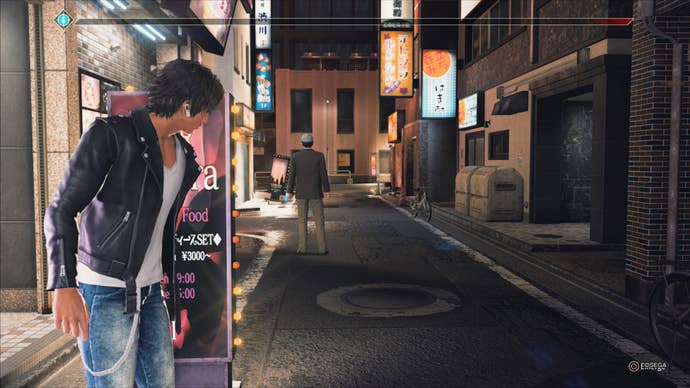
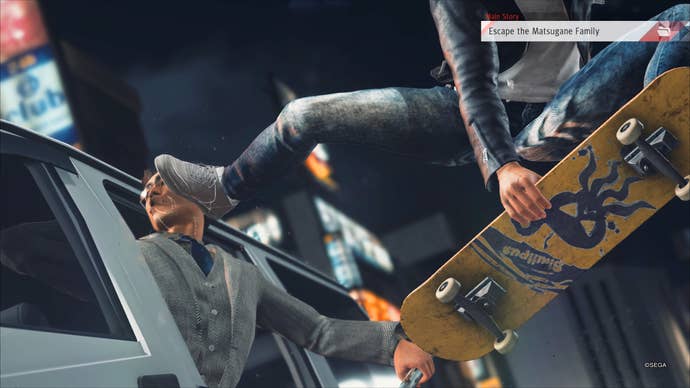
Judgment, like many Yakuza games before it, is a game that understands what it's like to live in a tight-knit community in the outliers of society, and its story and many systems are built upon that idea. In it, you play as Takayuki Yagami. He's not as instantly lovable as everyone's favorite on-again, off-again yakuza Kiryu, but he has charm in his own right. Whether he's finding a lost cat or chasing down a dangerous stalker, he tackles every case like his life depends on it. And in actuality, it does: he's dirt poor and sleeps on his office's couch.
Once upon a time, Yagami was a budding lawyer. But after a client he got acquitted of murder is found literally red-handed a month later, now having stabbed his girlfriend repeatedly and set their apartment aflame, Yagami finds himself deeply disturbed with the prospect of defending murderers he wrongly believes are innocent. His client is put on death row, and soon after Yagami abandons his post. He grows out his hair, buys a magically water-resistant leather jacket, and becomes a private detective alongside his childhood friend Kaito, an ex-yakuza.
Usual to the Yakuza formula, it's not just the dramatic main story that's the draw: it's everything inbetween it too.
Judgment, at its heart, is a brawler. Yagami fights many, many, many people in the streets of Kamurocho. He has two fighting styles: Crane, which is useful for crowd control (a.k.a. a lot of roundhouse kicks), and Tiger, which is great for one-on-one battles and deals more damage. With SP, points that are earned through anything you do from finishing mission objectives to eating, you can upgrade your abilities in battle, in tasks like lock picking, and even up your alcohol tolerance.
When your health meter is low in Judgment, you seek out food. Though when you weather a "mortal wound" like a gunshot, you have to go to the doctor who lives in the sewers to restore your whole health meter because it gets semi-permanently depleted. The latter is a new feature to the series that, in a very clever way, does a good job of keeping you always in need of money. There were a few times where I had to ignore the critical path and pick up more side cases for extra yen, just so that I could pay for the 20,000 yen treatment to restore my full health bar and buy some expensive Medical Kits.
Living in a small neighborhood, it's normal to find yourself frequenting the same places over and over again, and naturally, befriending the cashiers and service people that work there. In Judgment, it's no different, and the friendships you forge through these interactions and side quests net you occasional gifts, or they even help in battle. Like Ryan, the obvious gaijin in a corny ninja outfit who helpfully pops up now whenever I battle some yakuza in the streets now.
The side cases—essentially this game's "substories"—you can take on as Yagami typically fall into his lap, though there are some he can collect from people, like Saori at Genda Law. (The law firm he was formerly with.) That means there's a lot of tailing cheating spouses and other suspicious characters. Tailing targets, which requires ducking out of sight if they grow suspicious as you follow them at a glacial pace, is one of the more tedious gameplay additions to Judgment. The sequences last a very long time, and are very dull.
Judgment introduces a fair amount of new mechanics to the mix, in addition to tailing. Yagami has a drone that he can readily whip out, or race against others in a minigame. The drone, I found, is useful in scouting missions where I had to find something specific with no clear waypoint, as it's a lot more efficient than running in circles through alleys.
In addition to tailing and drone missions, there are chase sequences with QTEs that throw in a touch of hilarity, like Yagami hopping on a skateboard. There are also investigations where in first-person you walk around an environment (or sometimes not) and zoom in on details. In each investigation mission, you can spot a stray cat for bonus SP, in a silly touch. Some missions require you to wear a disguise too; sometimes the disguise has to be specific, but on most side cases, it doesn't. So I always dressed up as a vampire from something I wore in another case. No one ever suspected a thing!
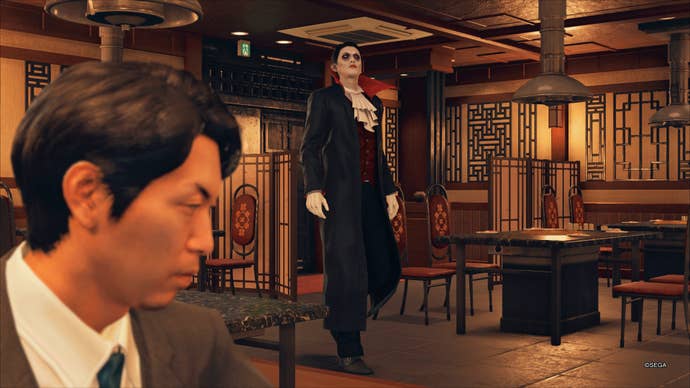
Like Kiryu, Yagami's a man of morals. In one string of cases, he chases down and beats up nasty serial gropers; when a man's wig flies off, Yagami chases after it with no question. ...Well, maybe some questions. He saves a 19-year-old aspiring musician after her seedy producer tries to assault her, and kicks his ass too. In a gross follow-up, however, the musician in question is one of four women Yagami's able to date. He is 35. (Luckily, the other women are in their late 20s and, thus, closer to his age.) The potential girlfriends each have their own subplots, usually related to the side case wherein you first met each of them.
While there's no karaoke to be found in the bars of Kamurocho, there are plenty of games (including one that lifts its likeness from Yakuza: Dead Souls) to play at Sega arcades, darts to play and prevail over your girlfriend at, a weird virtual board game, underground casinos to play poker and blackjack at, and so on. I even lost 100,000 yen while playing poker once, because I'm an idiot. (In retrospect, this is probably why I was poor all the time in Judgment.)
And in a rare twist from past games, Judgment's central serial killer mystery is oftentimes even more compelling than the more mundane side cases Yagami can take on. While the side cases are just as silly (or the opposite) as substories in mainline Yakuza games; for me, they weren't what kept me going. Rather, it was Yagami, Kaito, and the rest of their group that forms over the course of the story, and their shared pursuit of the truth within the very twisty story that gripped me. Judgment carries all the essence of a good crime J-Drama, where it very obviously takes its inspiration. (Guaranteed thanks to the inspired casting of actor Takuya Kimura. It even has a theme song at the opening credits.)
In perhaps my biggest gripe with Judgment though, it fails to capture the feeling of being a detective. You can flub up interrogations often, but it's never a game over. The worst you're impacted is a lack of bonus SP. Both the main storyline and side cases lack a true investigative edge, with only a few of them encouraging you to rifle through your evidence file and read Yagami's notes to figure something out, such as where a location to go to is. For being a detective game, Judgment feels very on-rails terms of solving mysteries, and I found myself wishing it would let me go off the beaten path and solve things my own way.
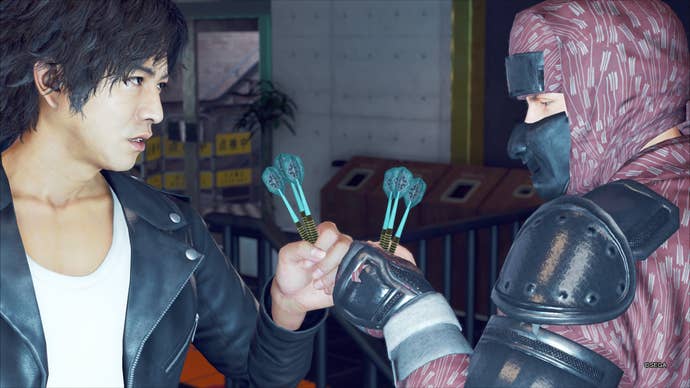
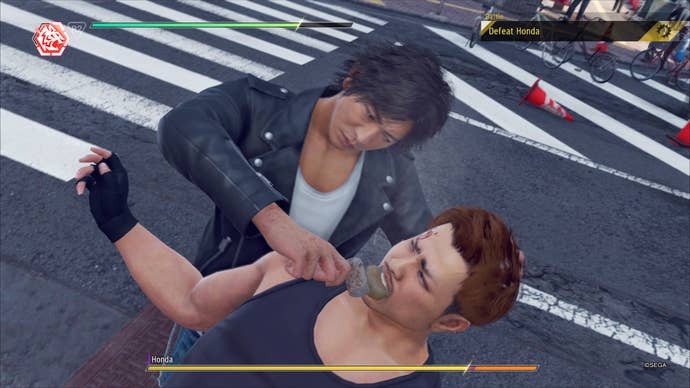
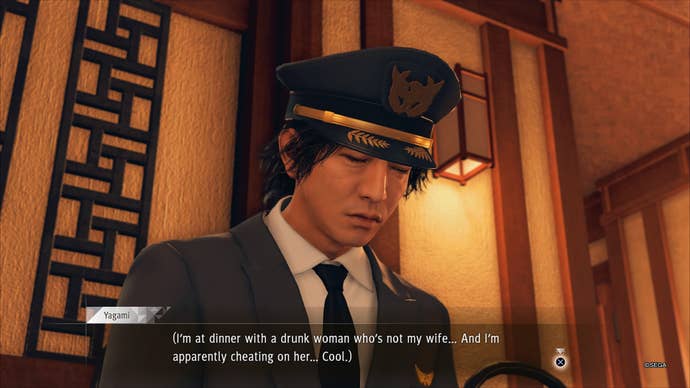
Despite that, I had an excellent time with the detective-skinned Yakuza game. With a whole new cast of characters to establish, Judgment does so with adeptness. It carries its central murder mystery into unexpected directions, and all along the way, it's always captivating. It takes a little while to really get going—I'd say chapter three is where it picks up—but once it's rolling, it never stops. Of course, you can always ignore the main story to just find lost cats too. In Judgment, the choice is yours.
ConclusionJudgment is very much a Yakuza game in detective clothing, but with some clever twists and a killer mystery at the center, it ends up feeling surprisingly distinct. While some of the detective-specific mechanical additions are a drag, everything else vibes really well with the familiar Kamurocho setting. It's easily the best of the recent line of Dragon Engine-developed games in the series—even without Kiryu Kazuma at the center, and even without a karaoke minigame.
